Noel Pearson’s path to Yes vote for Indigenous voice to parliament: respect and responsibility
Noel Pearson has reframed the strategy of the faltering Yes campaign, declaring ‘a secret weapon’ that could yet win the vote on the voice.
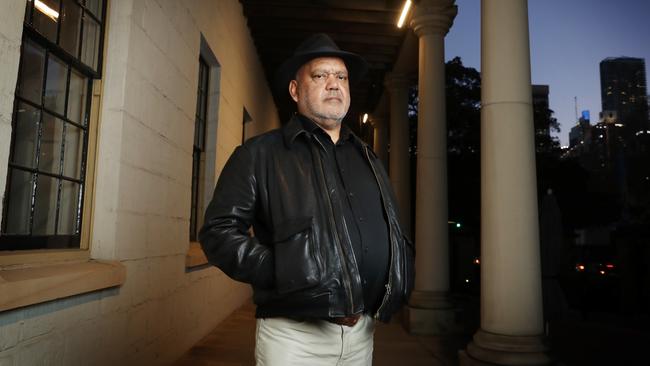
Indigenous leader Noel Pearson has reframed the strategy of the faltering Yes campaign, declaring “a secret weapon” that could yet win the vote on the voice over the next six weeks.
The Yes campaign must engage respectfully with the “soft Nos”, the people of middle Australia who had genuine questions, Mr Pearson said at The Australian’s first Great Voice Debate on Tuesday night.
“We know that we have hot Yeses and hot Nos, but there’s the big mob in the middle, up to 30 per cent undecided,” the Guugu Yimithirr lawyer and activist said.
“It also comprises what they call the soft Yeses and the soft Nos. And our pathway to success is to listen to the soft Nos.
“We’ve got to listen respectfully to those people who have reservations or questions or concerns.
“We have got to deal with them in good faith. We have to believe their questions come from a good place.
“They are well-motivated. But unless our campaign answers their questions they’re going to continue to have them.”
“Really our secret weapon in this next six weeks will be the engagement of those soft Nos in the middle, to treat every Australian that has question marks about this referendum seriously and to answer their questions and treat them with the respect and intelligence they deserve … A lot of their questions are extremely on point.
“The Yes campaign has to find the humility and patience and respect that Australians are contemplating a change to their most sacred document. It is an important document to everyone and it should not be lightly changed.”
The event marked a return to the Noel Pearson of old, intent on marrying the principles of Indigenous rights and responsibilities, with the voice as the framework to do so.
“Empowerment and recognition go together,” he said.
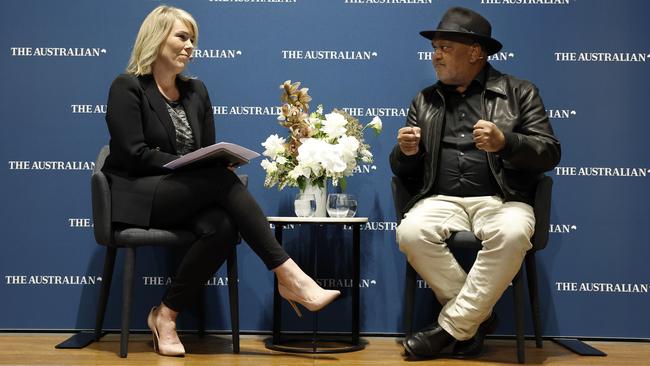
Asked whether the next step was a conversation about a national treaty with First Nations people, Mr Pearson said that was “an old aspiration in Indigenous policy”.
“Whether it becomes part of the federal policy story will depend on people returning to the advocacy, convincing the government, convincing the Parliament, that’s something way down the track, 20 or 30 years. But the question we have in front of us now is the question of the voice.”
Mr Pearson argued, as he did in a Boyer lecture last year, that the voice would enable Indigenous people to take responsibility for the problems they faced.
“Until we take responsibility, there’ll be no turnaround in closing the gap,” Mr Pearson told Claire Harvey, The Australian’s editorial director and the host of the paper’s daily news podcast The Front.
“I felt that the responsibilities agenda was a complement to the rights agenda that I’d been first focused on.
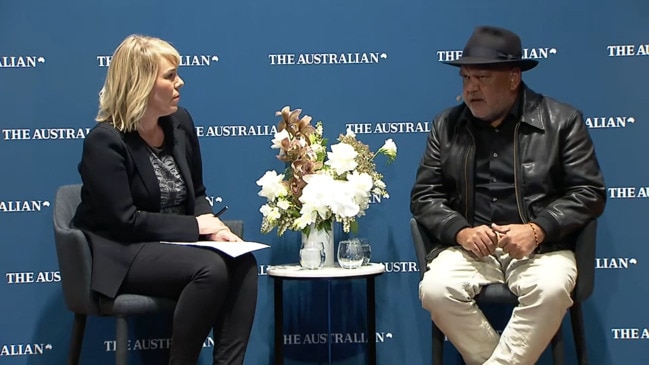
“Of course, it meant that I had to incur the wrath of my fellow travellers on the Left who supported me on Mabo and Indigenous rights, and who were very perplexed and hostile about this talk about responsibility, seeing it as right-wing language and resisting it.
“But the two have got to come together, (that) is my conviction. You’ve got to have rights and responsibilities. And I believe this voice proposal will lock that whole paradigm together, rights and responsibilities, empowerment from the ground up.
Mr Pearson said he believed it was important that the legislation designing the Voice allowed for the formal expression of dissenting voices, like occurs in a parliamentary committee.
“There might be a consensus view of the voice about something but if Cape York wants alcohol control, we should be able to give that advice,” he said.
“If Cape York wants welfare reform, we should be able to say that, even if the current is against it.”
Mr Pearson spoke of the great push back he had experienced from some in his community.
“You think my mob like it when I talk about responsibility?” he said. “They love it when I talk about rights and how they’ve been victimised; they don’t like it when I say take responsibility for your children – nobody’s going to save you until you get your family together.
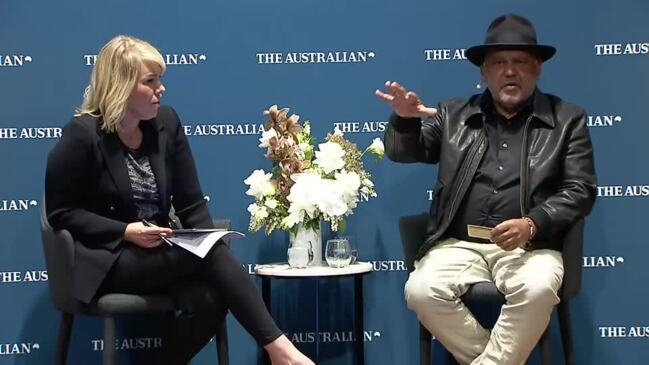
“The voice in Canberra needs to tackle the big policy questions that actually determine whether you can do those things on the ground – like, is work for the dole a good thing?”
Mr Pearson said Indigenous scholarship programs had been extremely successful.
“What’s the policy lesson to be learned from all this success we’ve had out of getting kids into boarding schools?” he said.
“That’s a big policy question … we need to advocate to say why aren’t we growing this thing that is already proven to be successful.”
“What is empowerment, other than these two boys,” he said, referring to the two Indigenous scholarship students in the audience.
They had been “supported by their mothers, supported by their families, climbing through a better life for themselves, and eventually giving back to their community”
Local and regional voices would be critical to the final model delivering practical outcomes on health, education, housing and infrastructure.
“We need voices at the local level,” Mr Pearson said.
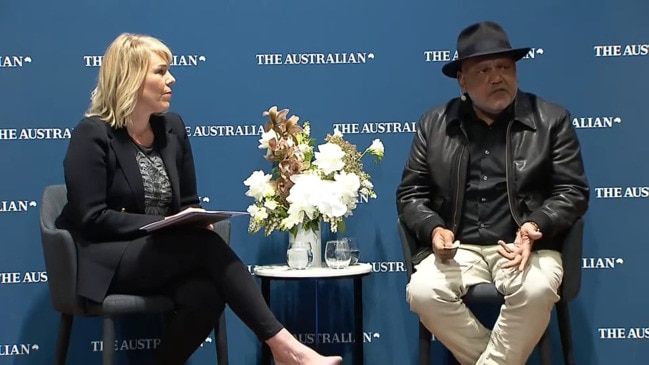
“Conservatives are right about that. We need local and regional voices – that’s the important place where deals between government and local communities are made, about practical matters relating to health and education, and housing and infrastructure.
“If they’re not happening at Wilcannia, nothing’s happening. (If) it’s not happening at Aurukun, nothing’s happening.
“So really, the voice needs to play out at the local level and the regional level.”
Mr Pearson said an Indigenous voice to parliament would be a “conduit sending an agenda down to Canberra” that would deliver solutions to First Nations communities.
He called the debate over a lack of detail about the voice being released as “deceptive”.
Mr Pearson described the introduction of the voice as “Democracy 101”, saying that advisory committees were common when communicating with the government.
“The voice is a voice outside of the parliament into the parliament. It’s not part of the parliamentary process.
“The core of our democracy is unaffected by the insertion of the voice.”
Mr Pearson said the Voice needed to advocate for “communities to have the necessary land tenure to encourage investment”.
“We now, after Mabo, have lots of land,” he said. “But we don’t have the tenures to make it attractive for investors to come in and help us build industries that can offer jobs to our people”.
“We have spoken in Cape York of having investment-ready tenure. But that requires a lot of support from government. Those are things that the voice needs to advocate. Many of these places have not been surveyed. How can you have a property system if a town has not been surveyed? We need government to focus on this and put in the property systems that communities need in order to be engaged in enterprise and attract investment.”
The Australian’s editor in chief Michelle Gunn, who hosted the event at the Mint in Sydney, said Mr Pearson had spent decades working towards constitutional recognition of Indigenous Australians, “deploying his distinctive mix of high intellect, passion and searing cut-through”.
Among the audience on Tuesday night were The Australian’s former editor in chief of Chris Mitchell, and Sky host and associate editor of The Australian, Chris Kenny, a member of the panel appointed by the previous government to advise on the design of a voice.
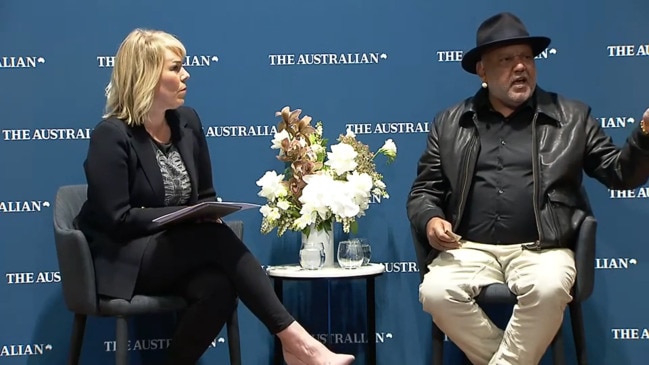
Gunn related how, in a recent piece, Mr Pearson wrote that two of his great prayers in life had been answered: Eddie Jones had returned to coach the Wallabies and the nation was on a path to a referendum.
Mr Pearson’s third prayer was for a Yes vote from a majority of Australians, and a majority of states – the prerequisites for a referendum to pass.
The most recent Newspoll, published in The Australian, put national support for the voice at 38 per cent.
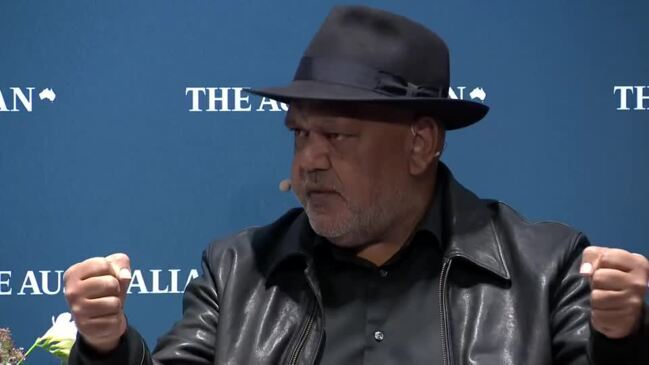
“The Newspoll published this week suggests it might be time for a little divine intervention,” Gunn observed.
“But Noel has faith. He is firm in his belief that Australians will vote yes.”
The Australian will host a second event on the voice next week on September 14 in Canberra with opposition Indigenous affairs spokeswoman Jacinta Nampijinpa Price, from the No campaign.
“Jacinta, like Noel, is extremely popular with our readers and, like him, draws on personal experience of life in remote, disadvantaged communities to inform her position,” Gunn said.


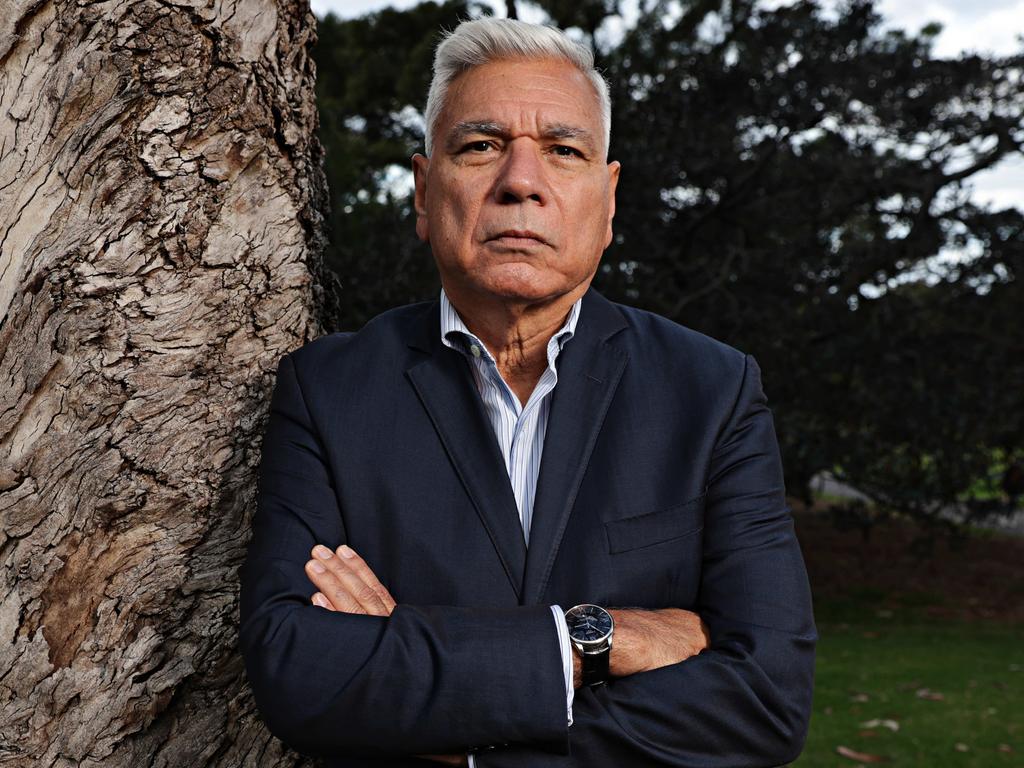

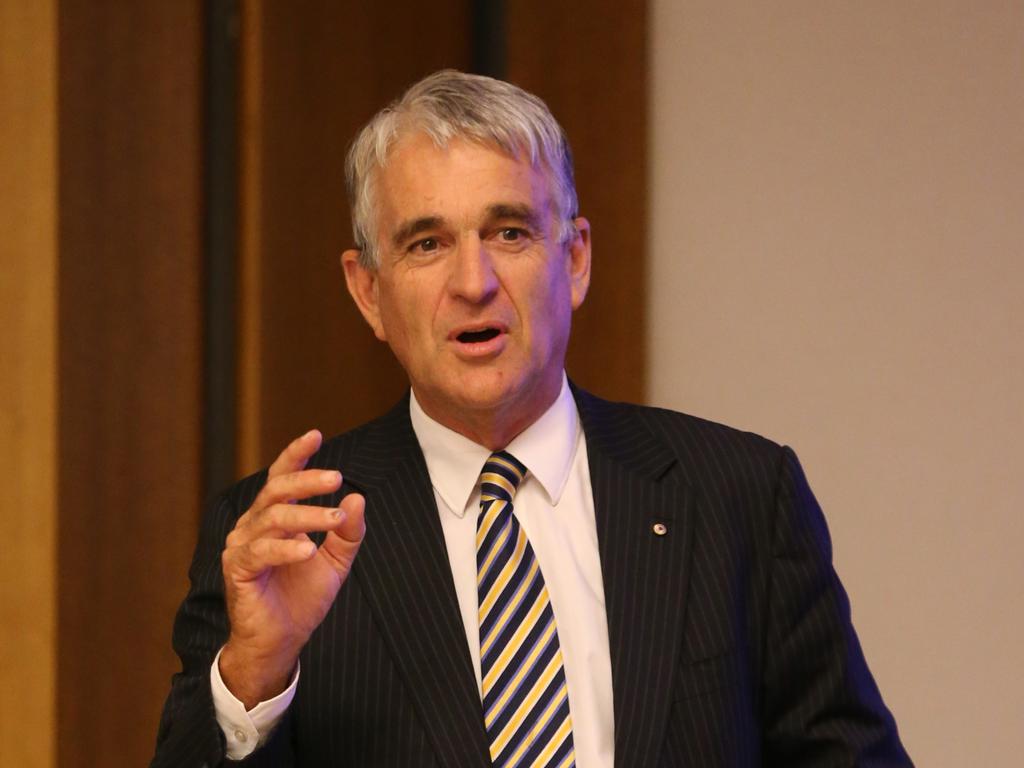
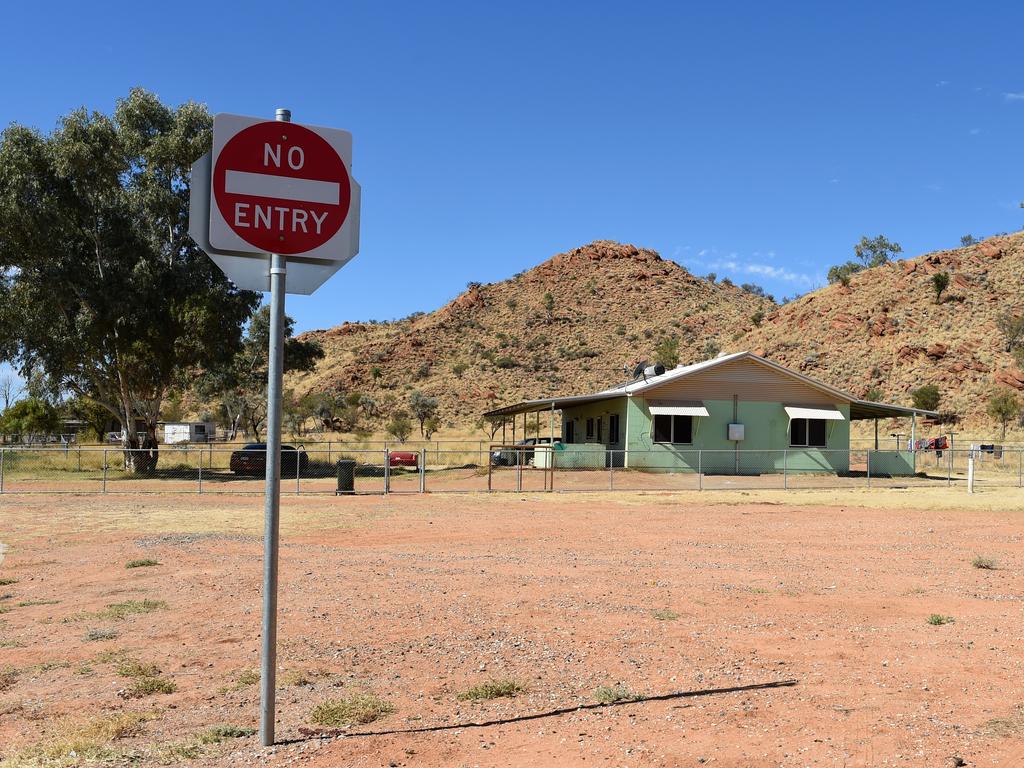


To join the conversation, please log in. Don't have an account? Register
Join the conversation, you are commenting as Logout